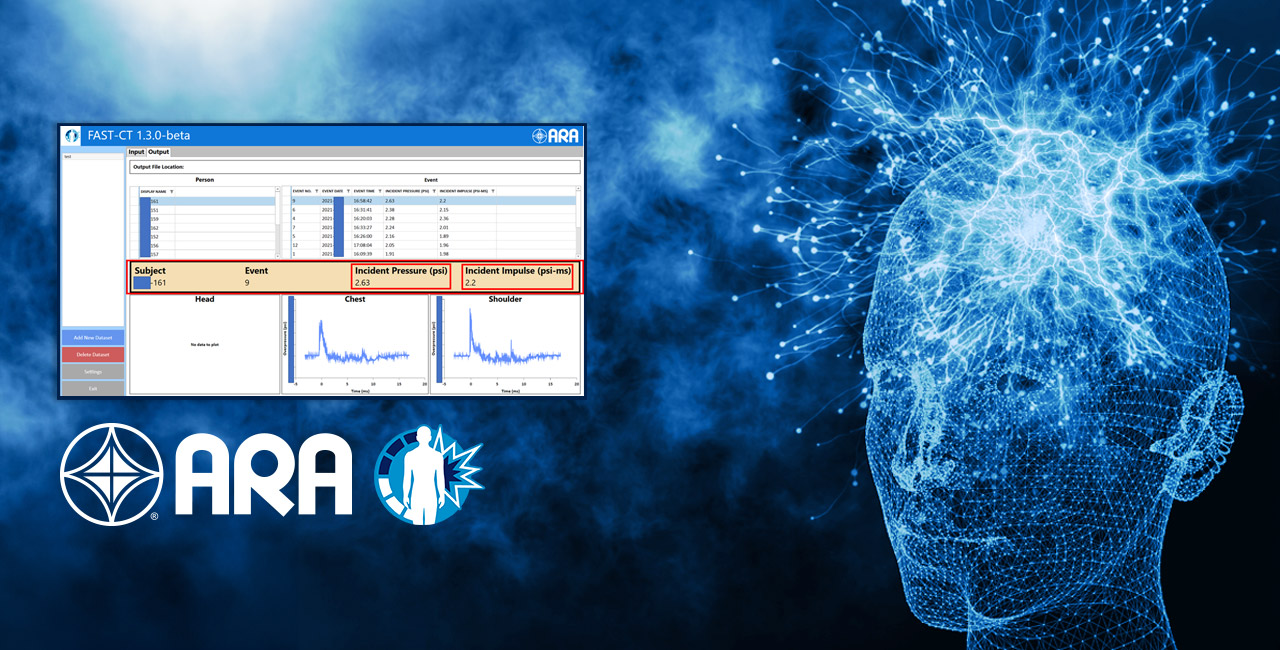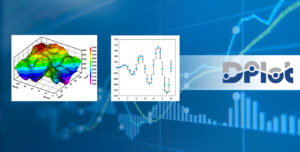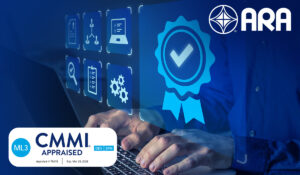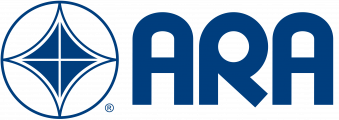Software Promotes Quality Control and Improved Analysis

Applied Research Associates, Inc. (ARA) is pleased to announce it has received two patents related to body-mounted blast sensor data analysis. The patents address concerns regarding air blast effects on service members and their impact on brain health.
Tools based on the patents could save time and accelerate research of blast effects on the brain as monitoring of blast exposure in combat and training expands with militaries and law enforcement agencies across the world.
Leveraging the patented technology, ARA researchers developed FAST-CT, software that promotes quality control and improves service member brain health data as it relates to blast effects. The patents and related software standardize processing of blast overpressure data from body-mounted sensors, allowing one-to-one comparisons across units for future blast exposure studies.
“These patents and the associated software developed by ARA are critical to ensuring consistent, high-quality data from body-mounted blast sensors,” said Principal Engineer Suthee Wiri, who leads blast research at ARA. “This will allow researchers to conduct longitudinal studies to connect blast exposure with brain health and adverse outcomes.”
FAST-CT provides accurate blast overpressure data to help evaluate blast incidents and their effects on service member brain health using physics-based algorithms to calculate incident blast metrics from blast events. This data can then be output directly to service member’s medical records for future reference, or to a compatible research database.
“FAST-CT is an easy-to-use software tool that quickly and accurately processes body-mounted blast sensor data,” said Principal Engineer Christina Wagner. “Currently, we have implemented FAST-CT in MS Windows software, but it can be deployed on other platforms as needed.”
“ARA is dedicated to bringing together multidisciplinary teams to advance our understanding of blast injuries and brain health. We continue to invest in research, upgrades, and field testing to improve our leading-edge software to collect and analyze body-mounted blast overpressure sensor data.”
Suthee Wiri, ARA Principal Engineer
ARA has long been at the forefront of research into blast effects on the brain, serving as a key partner the medical and military communities look to for innovative health solutions and research into personal protection and traumatic brain injuries.
The Patents
US Patent 11,543,316B: Identifying false positive data within a set of blast exposure data was awarded in January 2023. The patent outlines a method to identify and remove false positives from blast sensor data. High-quality data is vital when data is placed in a service member’s medical records. This patented technology promotes improved quality control of the data. ARA’s False Positive Filter (FPF) software automatically identifies false positive data, saving time and reducing the manpower needed to process data. Historically, false positive identification was done manually by an expert user, which is not feasible when large amounts of data must be processed.
US Patent 12,007,295 B3: Blast exposure assessment system was awarded June 2024. The patent outlines a method to analyze blast exposure data. Two key features include: 1) standardized blast metrics and 2) identifying, flagging, and removing spurious data (false positives). Many aspects of this patent are implemented in ARA’s FAST-CT software, created by a multidisciplinary team leveraging expertise in blast physics, signal processing, software development, and algorithm development.




